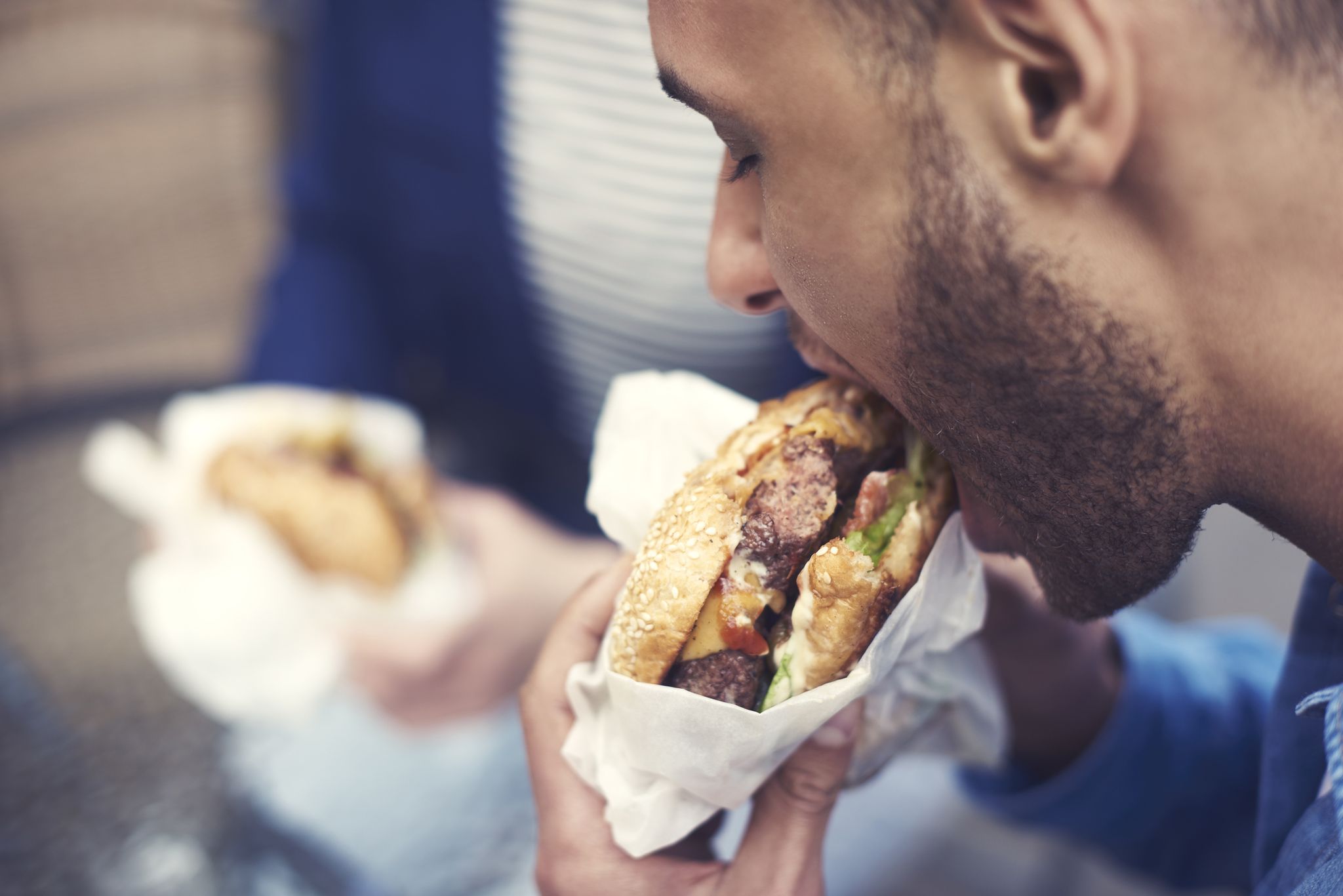Early man’s gorging on sugars helped us to evolve large brains and let us outrun the rest of the food chain. This evolutionary impulse to load up on energy-rich foods explains why cravings today have little to do with hunger. Instead, they’re a physiological response: carbs light up your brain more than any other macro, which is why they’re the hardest to cut back on.
But that's not all that happens when you crave fast food. Take a look at four other ways you can hack your own biology and avoid eating junk.
Happy Memories
Your cravings begin in your brain’s reward centres, rather than in your hunger circuitry. The signals are intended to make you feel good when you engage in activities crucial to survival, such as eating and sex. When you devour a Big Mac meal, a “pleasure” neurotransmitter called dopamine is released. Your brain remembers this link between Big Mac sauce and happiness and encourages you to repeat the experience.
Trigger Warning
Breaking habits isn’t easy, especially if you associate your behaviour with a positive feeling. While the food itself may not have addictive properties, the release of dopamine plays a major role in getting you hooked. A study in Nutrition Review found that “environmental cues” and “sensory, metabolic, endocrine and neural pathways” conspire to trigger your cravings. In other words, your brain and surroundings work against you. Which explains the campaign to stop children being exposed to junk food ads.
Control Yourself
The majority of the research on cravings focuses on how to manage them when they crop up. Resist the biscuit tin for five minutes, or get up and take a walk, and the craving should disappear. Mindfulness is becoming a popular avenue for controlling cravings: spend time clearing a little headspace and you’ll be better able to focus your thoughts away from that lunchtime Snickers or post-pint pizza.
Record Results
Still struggling? Try keeping a food diary, recording not only what you eat and when, but also what you crave and when. Use this to identify patterns. More importantly, keeping a close eye on your eating habits should ensure your blood sugar and energy levels remain steady, putting a lid on hunger. Meanwhile, sharp tastes (such as those of lemon juice and Listerine) can curtail cravings. So, if all else fails, wash your mouth out.
Like this article? Sign up to our newsletter to get more articles like this delivered straight to your inbox.













